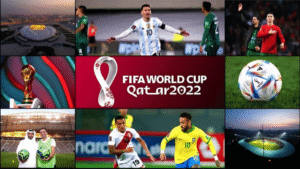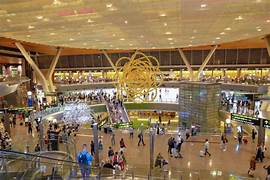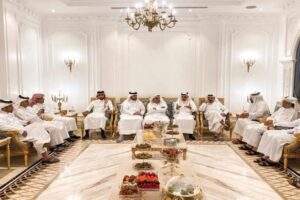As Qatar looks toward 2025 and beyond, managers are facing new challenges shaped by Vision 2030, a multicultural workforce and rapid economic transformation. Developing the right leadership skills for managers in Qatar is no longer optional. It is the foundation for building organisations that can thrive in a fast-changing and competitive environment.
In this article, we explore the leadership capabilities that will matter most and how managers in Qatar can strengthen them to succeed in the years ahead.
Qatar today stands at a defining moment in its economic journey. Over the past two decades, it has redefined itself from an energy powerhouse into a nation investing in knowledge, technology and sustainable development. The Qatar National Vision 2030 provides the roadmap for this transformation. It seeks to balance prosperity with cultural depth and social progress.
The FIFA World Cup 2022 was a declaration of their capability. For many, it was the first time they  saw the nation up close. A wonderful host and a bold global player. The tournament showcased Qatar’s ability to deliver world-class projects with precision and flair. From futuristic stadiums to one of the most advanced metro systems on the planet, Qatar proved that scale and sophistication are not just the preserve of big nations.
saw the nation up close. A wonderful host and a bold global player. The tournament showcased Qatar’s ability to deliver world-class projects with precision and flair. From futuristic stadiums to one of the most advanced metro systems on the planet, Qatar proved that scale and sophistication are not just the preserve of big nations.
The real legacy of the World Cup was the confidence and visibility it gave Qatar. The tournament helped push the nation’s economy to expand by 4.8% in 2022, with analysts estimating the World Cup alone added close to 1% to Qatar’s GDP. According to the World Bank, Qatar’s GDP per capita remains one of the highest in the world, and non-energy sectors are projected to grow steadily as diversification efforts accelerate (World Bank, 2023).
It showed the world that Qatar can lead, innovate and set benchmarks.
What comes next is how Qatar can translate this into its workplaces, managers and leaders.
With expatriates making up nearly 88% of the population (Planning and Statistics Authority, 2022), Qatar’s workforce is one of the most diverse in the world. This diversity brings opportunity as well as complexity.
In Qatar, cultural intelligence is a survival skill. To be successful, the managers need to learn how to blend Qatari values like hospitality, respect, family and faith with international best practices.
 Take Hamad International Airport. With staff from over 100 nationalities, the leadership team had to build a culture that was inclusive yet unmistakably Qatari.
Take Hamad International Airport. With staff from over 100 nationalities, the leadership team had to build a culture that was inclusive yet unmistakably Qatari.
The result? In 2023, the airport was named the World’s Best Airport by Skytrax, a testament to how cultural inclusivity can deliver world-class outcomes.
Communication in Qatar draws strength from tradition. The majlis, a traditional gathering space, has long been a symbol of open conversation and consensus-building. That spirit is alive today and also evolving.
long been a symbol of open conversation and consensus-building. That spirit is alive today and also evolving.
Younger Qataris and multinational teams expect openness, feedback and a two-way dialogue. A PwC Middle East survey (2021) found that 62% of employees ranked open communication with leadership as the top factor for engagement.
By combining cutting-edge digital tools with a culture of respect and dialogue, it has positioned itself not only as a telecom leader but as a digital enabler of Qatar’s knowledge economy.
This balance of tradition and modern tools is seen clearly in Ooredoo’s approach.
 Ooredoo is a strong example of this shift. When the company rolled out its internal “Ooredoo Digital Workplace” platform, they allowed employees across different departments and geographies to collaborate in real time, share ideas and raise concerns directly with leadership. At the same time, Ooredoo’s managers held regular townhalls borrowing from the majlis tradition, to ensure employees felt heard in a more personal, culturally familiar setting.
Ooredoo is a strong example of this shift. When the company rolled out its internal “Ooredoo Digital Workplace” platform, they allowed employees across different departments and geographies to collaborate in real time, share ideas and raise concerns directly with leadership. At the same time, Ooredoo’s managers held regular townhalls borrowing from the majlis tradition, to ensure employees felt heard in a more personal, culturally familiar setting.
This combination of modern digital tools with a culturally rooted approach, built trust, boosted engagement and positioned Ooredoo not only as a telecom giant but as a digital enabler of Qatar’s knowledge economy.
For managers across industries, the lesson is clear: communication must honour tradition while embracing modern expectations.
In Qatar, results matter, but so do relationships. Leaders need to read the room, sense unspoken expectations and maintain harmony.
The concept of “saving face” is key. A sharp comment in public might seem minor elsewhere, but here, it can damage trust in long term. Skilled leaders in Qatar must know how to disagree without disrespect, balancing clarity with tact.
Qatar Airways demonstrates this on a global stage. With employees from more than 160 nationalities, the airline’s leadership had to adapt its management style. Instead of rigid command structures, they developed leadership programmes focused on intercultural awareness and service empathy.
the airline’s leadership had to adapt its management style. Instead of rigid command structures, they developed leadership programmes focused on intercultural awareness and service empathy.
Leaders were trained to adjust their tone and style depending on cultural context. Whether that meant being more direct with some teams or more relational with others. This adaptability is a big reason the airline has consistently been rated among the world’s best: operational excellence paired with emotionally intelligent leadership.
For managers in Qatar, developing these leadership skills is what transforms challenges into opportunities for growth.
Qatar is undergoing rapid transformation, yet this change is always framed within the aspirations of Vision 2030. For managers, this means that leading transformation successfully requires connecting it to the nation’s bigger picture.
 Msheireb Downtown Doha is a brilliant example. Rather than push through a typical commercial redevelopment, its leaders positioned the project as a cultural and environmental statement. They engaged architects, urban planners and community leaders to ensure the design reflected Qatari heritage while using smart, sustainable technologies. By framing modernisation as a way of preserving identity and protecting the environment, they won both public trust and international acclaim.
Msheireb Downtown Doha is a brilliant example. Rather than push through a typical commercial redevelopment, its leaders positioned the project as a cultural and environmental statement. They engaged architects, urban planners and community leaders to ensure the design reflected Qatari heritage while using smart, sustainable technologies. By framing modernisation as a way of preserving identity and protecting the environment, they won both public trust and international acclaim.
Education City offers another lesson. Qatar Foundation developed this as a hub for education, research and innovation. They brought in global university campuses alongside local institutions creating an ecosystem that merged international expertise with local priorities. The focus is o n investing in research relevant to the region, such as energy, sustainability and Arabic culture. By aligning innovation with national goals, they ensured Education City became a living embodiment of Qatar’s knowledge-based economy vision.
and innovation. They brought in global university campuses alongside local institutions creating an ecosystem that merged international expertise with local priorities. The focus is o n investing in research relevant to the region, such as energy, sustainability and Arabic culture. By aligning innovation with national goals, they ensured Education City became a living embodiment of Qatar’s knowledge-based economy vision.
The leadership Qatar needs for 2025 and beyond cannot simply be borrowed from the West or East. It must be rooted in Qatar’s unique identity that is a blend of ambition, tradition and innovation.
Cultural intelligence, progressive communication, emotional adaptability and Vision-aligned change leadership will define the managers who succeed here. They won’t just help their organisations thrive but also play a part in shaping Qatar’s national story, that of growth, resilience and global relevance.
The road ahead is one of opportunity. The question for every manager in Qatar is not whether they will adapt, but how meaningfully they will lead.
At The Yellow Spot, we have already partnered with organisations in Qatar through sessions on Personal Effectiveness (emotional adaptability), Induction Training (cultural intelligence), Interpersonal Skills (progressive communication) and Leadership Skills (Vision-aligned change leadership)
If you are preparing your managers for 2025 and beyond, connect with us to explore how we can help you unlock their potential and strengthen your leadership pipeline.
Visit ‘https://www.theyellowspot.com’ for more info or reach out at info@theyellowspot.com / India: +91 99677 14310, +91 87792 84314


Blue Arch CHS, Louis School Lane, Four Bungalows, Andheri West, Mumbai – 400053